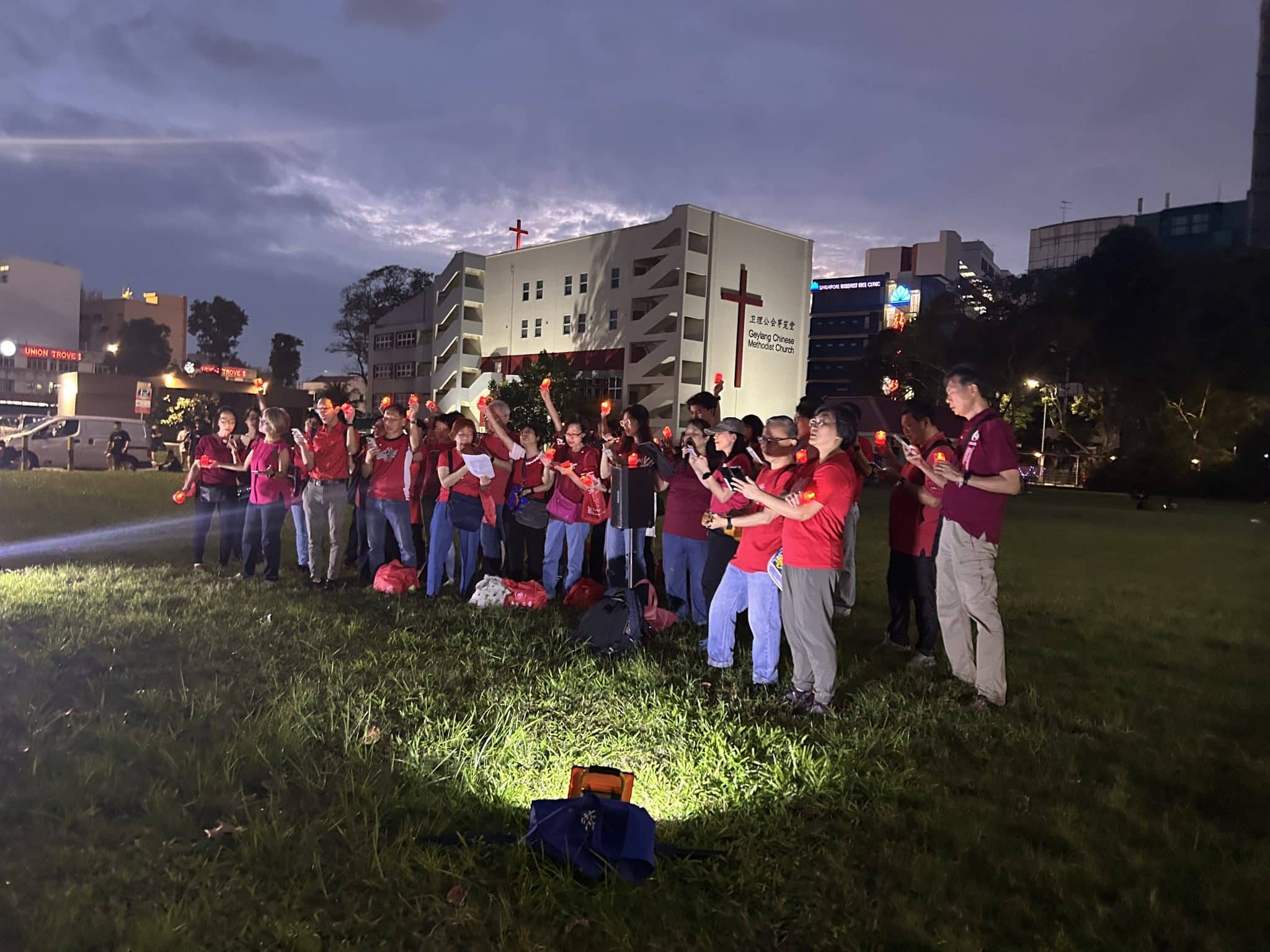The 5-year-old who raised $8,500 for COVID-hit migrant workers
From YMI Today
Kelly Ng // August 23, 2020, 11:32 pm
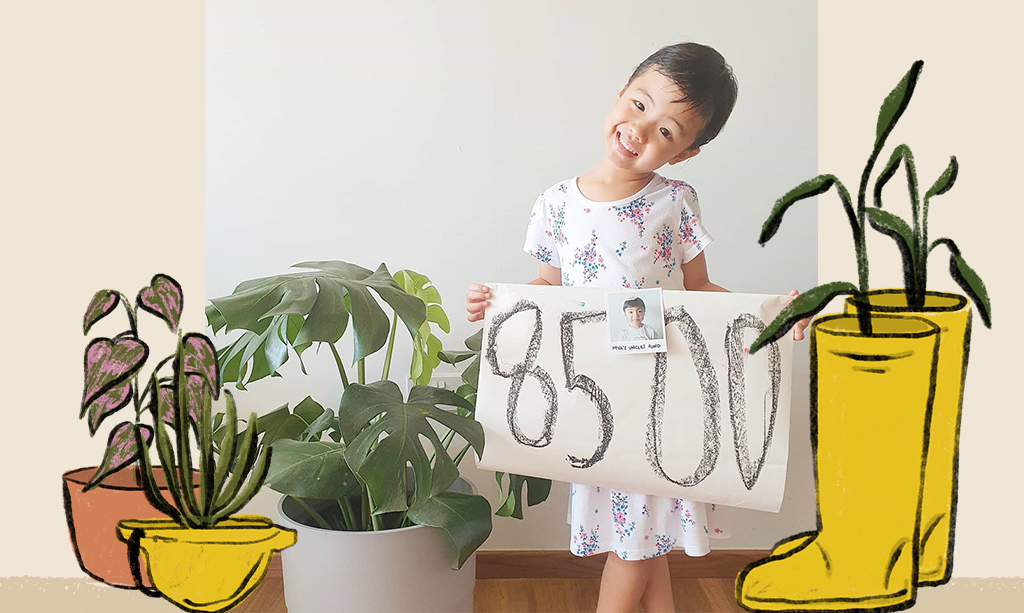
“Jesus took five bread and fed many thousands of people. I also want to feed many thousands of people with my five bread,” says Mya Ji, who sold plants that she propagated at home to give to the "uncles" and "aunties". All photos courtesy of Amy Ji via YMI.
When she saw the number of COVID-19 cases spike among low-wage migrant workers in Singapore earlier this year, Mya Ji sprung to action. The five-year-old emptied her piggy bank, hoping to buy these “uncles”— as Mya fondly addresses them – some good meals and bring some cheer.
She said: “They live so close together, and a lot of them have coronavirus so I just wanted to help out, for them to start their work again and build houses for other people.”
Although Singapore has kept infection rates low in the larger community, the number of COVID-19 cases have continued to surge among migrant workers living in cramped dormitories.
In 36 hours, little Mya sold over 200 plants and raised S$8,500.
“Jesus took five bread and fed many thousands of people. I also want to feed many thousands of people with my five bread,” said Mya.
But alas, her mom told her that what she had in the piggybank could only get them five packets of chicken rice.
“She said it’s not enough. She wanted (them) to have more, then she started looking around our house for things to sell. She wanted to sell her clothes, her books, her shoes,” recalled Amy Ji, 34.
“Then when she looked around some more, we saw that there were a lot of plants in our home, and most of them could be propagated,” said the stay-home mother of two.
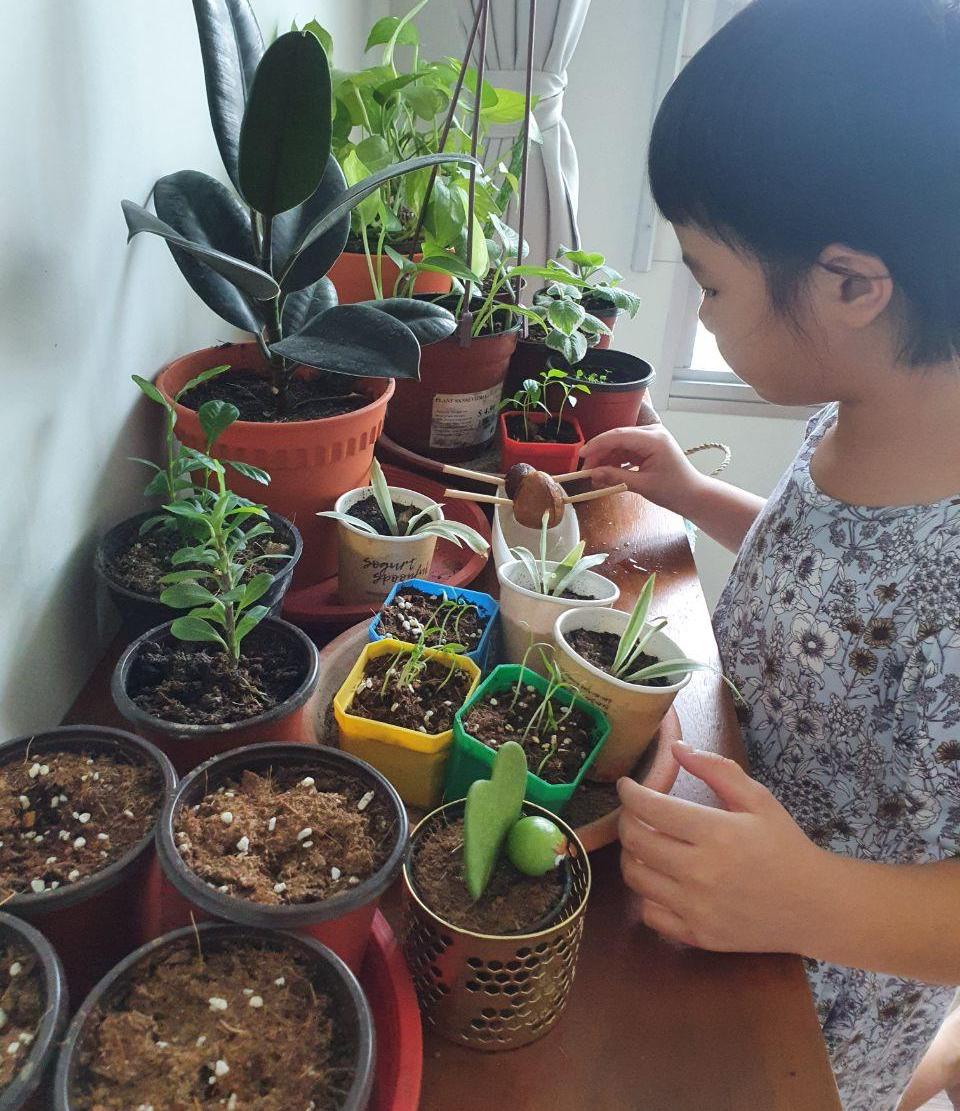
Mya carefully tending to the plants she propagated for her fundraising sale.
Thus sprouted the idea of a plant sale in April 2020. Amy first shared about the sale to friends and family members through the messaging app WhatsApp, then on her Instagram page.
And oh, did God multiply this little girl’s five loaves and two fishes.
Trusting in the God of miracles
Orders came in droves, from family and friends, as well as other individuals who just chanced upon the sale. In 36 hours, little Mya sold over 200 plants and raised S$8,500.
At Mya’s request, the money raised went to Migrant x Me, a Singapore-based social enterprise that seeks to raise awareness about the migrant worker community and encourage locals to treat them with dignity.
“When Mya said she was going to sell plants, I just went without any faith to buy 20 small pots. I was like, ah, we’re going to sell 20 plants, we’ll earn $100, it’ll be great. And then, bish … explosion,” said Amy.
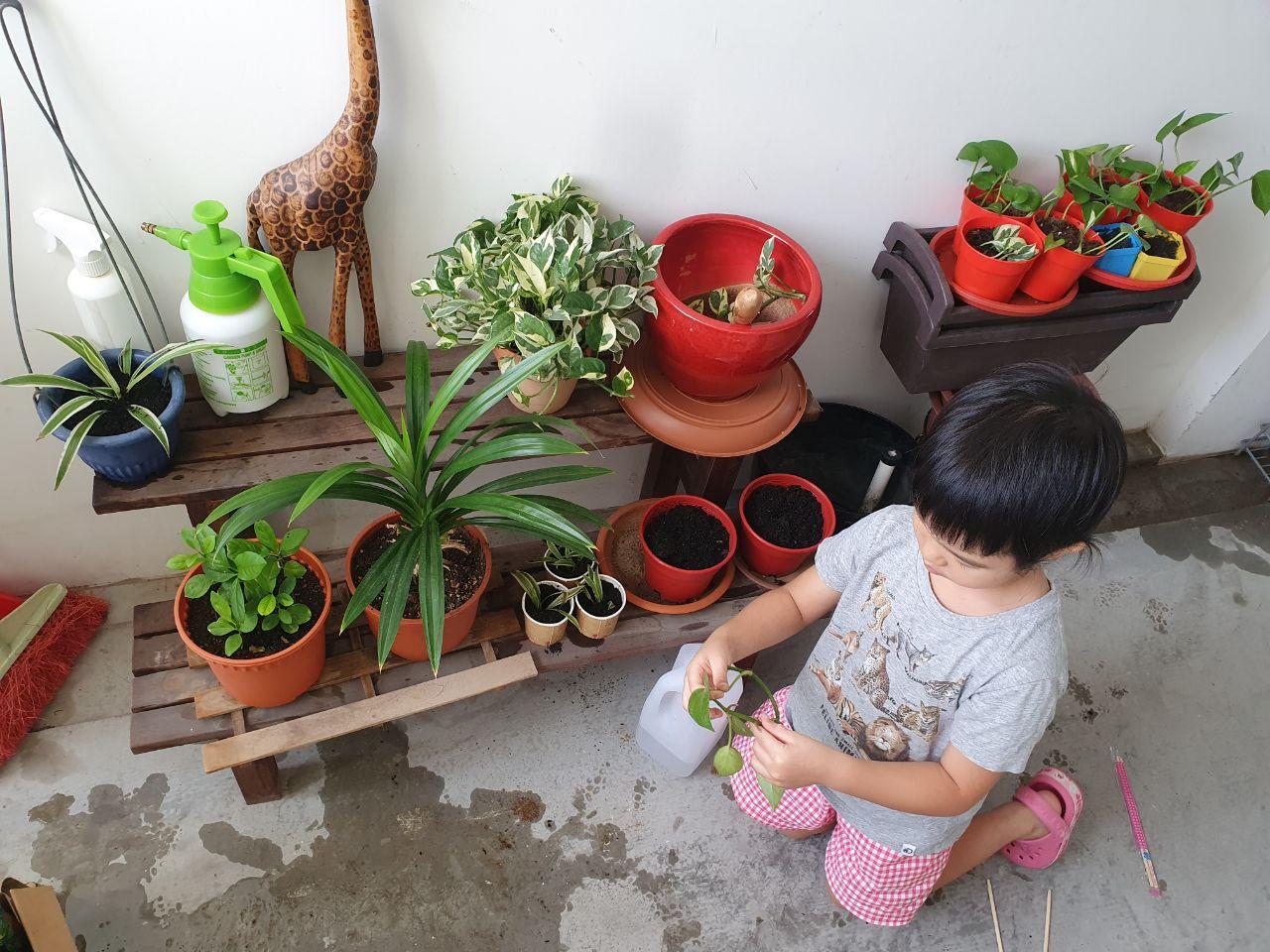
Children can teach us empathy because they don’t label or categorise people. “Mya doesn’t care if the uncle doesn’t speak her language. She just keeps going,” said Amy. “It shows me that love doesn’t need (a verbal) language.”
Mya, though, put her trust in the God of miracles. “Because Jesus did a lot of miracles. So I also want to help out like Jesus. And I think God feels sad for these uncles that He made,” she said.
Those who work on landscaping around her estate, in particular, are Mya’s favourite uncles.
The mother-daughter pair spoke to YMI over a video conference in July, when the family was still in the midst of propagating and handing out these plants to their rightful owners.
Amy asked her daughter: “So is that why you love the uncles, also? Is it just because God made them, so you love them already?”
Mya nodded.
Asked why she thought these uncles were important to the community, Mya replied: “Because they built our nice homes. But they stay in dorms like that. Why can’t they just build nice homes for themselves too?”
What a question that prods at the vulnerabilities and gaps in our society.
Mya must have rubbed off some of her mom’s sensitivity and compassion for the unsung heroes in our midst, even though Amy does not say so herself.
Amy, who is also a children’s book author, published a collection of picture books titled The Invisible People last year, which centred on construction workers, domestic helpers, and bus drivers in the society; and she had often brought Mya along — when she was just two-and-a-half years old — for interviews at construction sites.
The uncle at the Ji family’s go-to prata stall never fails to offer her free papadum.
Since then, Mya has developed a friendship with several in the migrant community, who are otherwise often neglected, even ostracised, by others in society.
Those who work on landscaping around her estate, in particular, are her favourite uncles. Mya often brings them drinks, offers them apples, and hangs out with them as they take breaks under a tree.
She is also psyched that her “painting uncles” — the workers tasked to paint the exterior of high-rise housing blocks — are returning to work, with Singapore gradually lifting the lockdown as more dormitories and workers are cleared of the virus.
Typically hoisted on gondolas lifts, these workers come into fairly close proximity with individual apartments.
Mya quipped: “Then can we open the windows when they paint?”
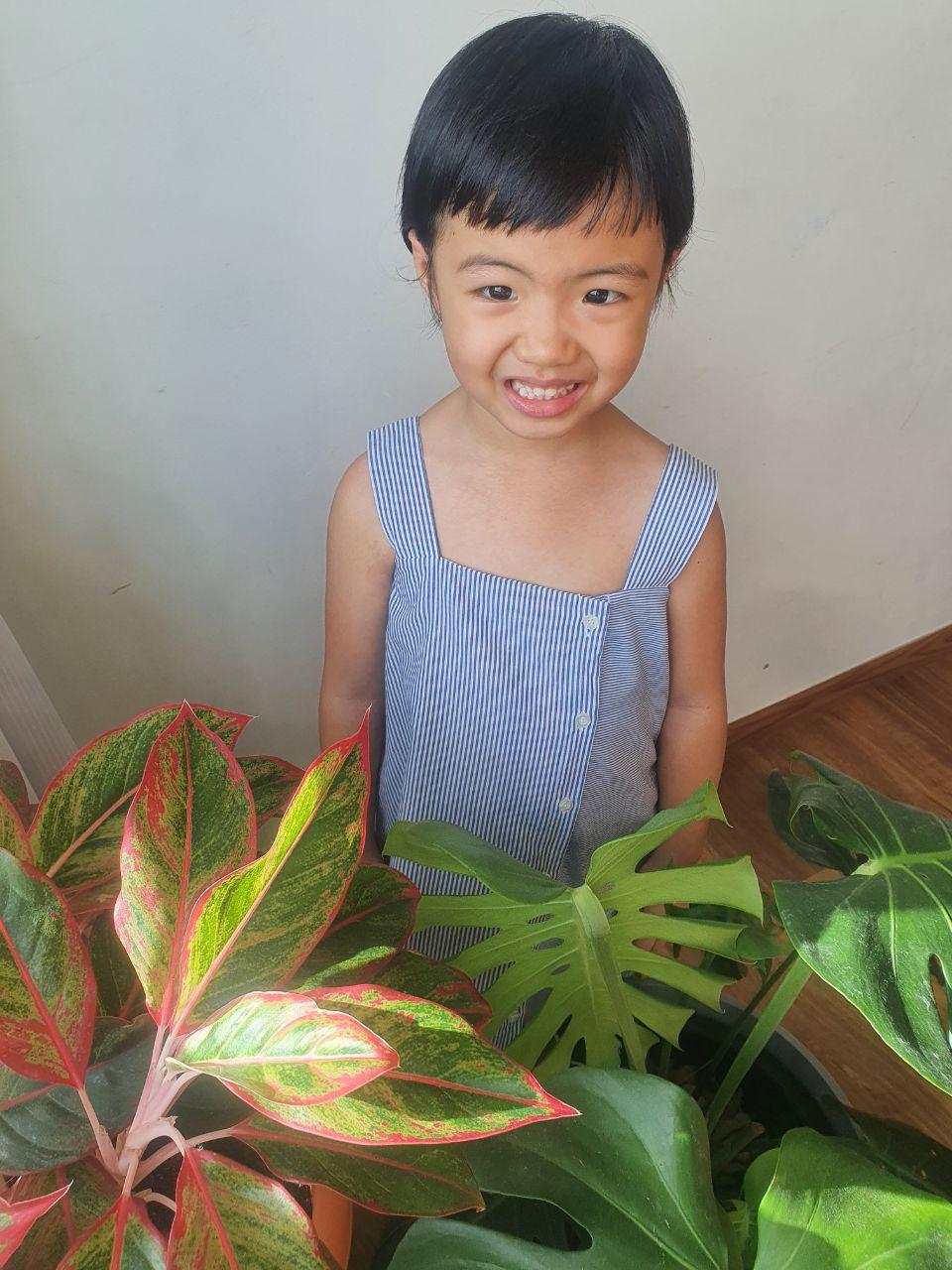
“Because Jesus did a lot of miracles. So I also want to help out like Jesus. And I think God feels sad for these uncles that He made,” says five-year-old Mya.
“So the uncles will be working, and then you’re like, ‘Hello! Have an apple!’” Amy laughed.
“But we can offer them cold drinks on a hot day. How about that?” she suggested.
And then there is also the uncle at the Ji family’s go-to prata stall who never fails to offer her free papadum.
“He does that only when she goes. No Mya, no papadum,” Amy said.
Loving even when it is disruptive and inconvenient
Amy admitted that even she took some time to get used to Mya’s friendliness. The little one’s “apple project”, for instance, disrupted her mother’s routine.
“There’s always her beloved grass-cutters, plant-groomers, car washers whom Mya never fails to chat with.”
“Initially, I was very annoyed. I usually buy a bag of apples for a week and I eat one a day. That’s my own practice. But then sometimes, when we get home from the supermarket, we only have three left. That’s because the aunty must have one, the grass-cutting uncle must have one, everyone that she meets along the way must have one. But I’m like, I only have 12,” Amy said.
“But one day my husband asked me, ‘Why can’t you buy another bag on the way home?’ And then I was like, yeah, why can’t I just buy another bag?”
Just as God often sends our life plans into unplanned and unrequested detours, He taught Amy a lesson of empathy through this minor inconvenience prompted by her daughter.
Children can teach us empathy because they don’t label or categorise people.
They see them as they are — without the “lenses” that many adults have acquired.
“They don’t go, oh, this person is not my race, this person is not my culture. Mya doesn’t care if the uncle doesn’t speak her language. She just keeps going,” said Amy.
“It shows me that love doesn’t need (a verbal) language. It doesn’t have any boundaries per se. Micah 6:8 comes to mind. It’s really just about walking humbly, loving mercy. And it’s what Mya does — it’s walking and talking and loving every single person around you.”
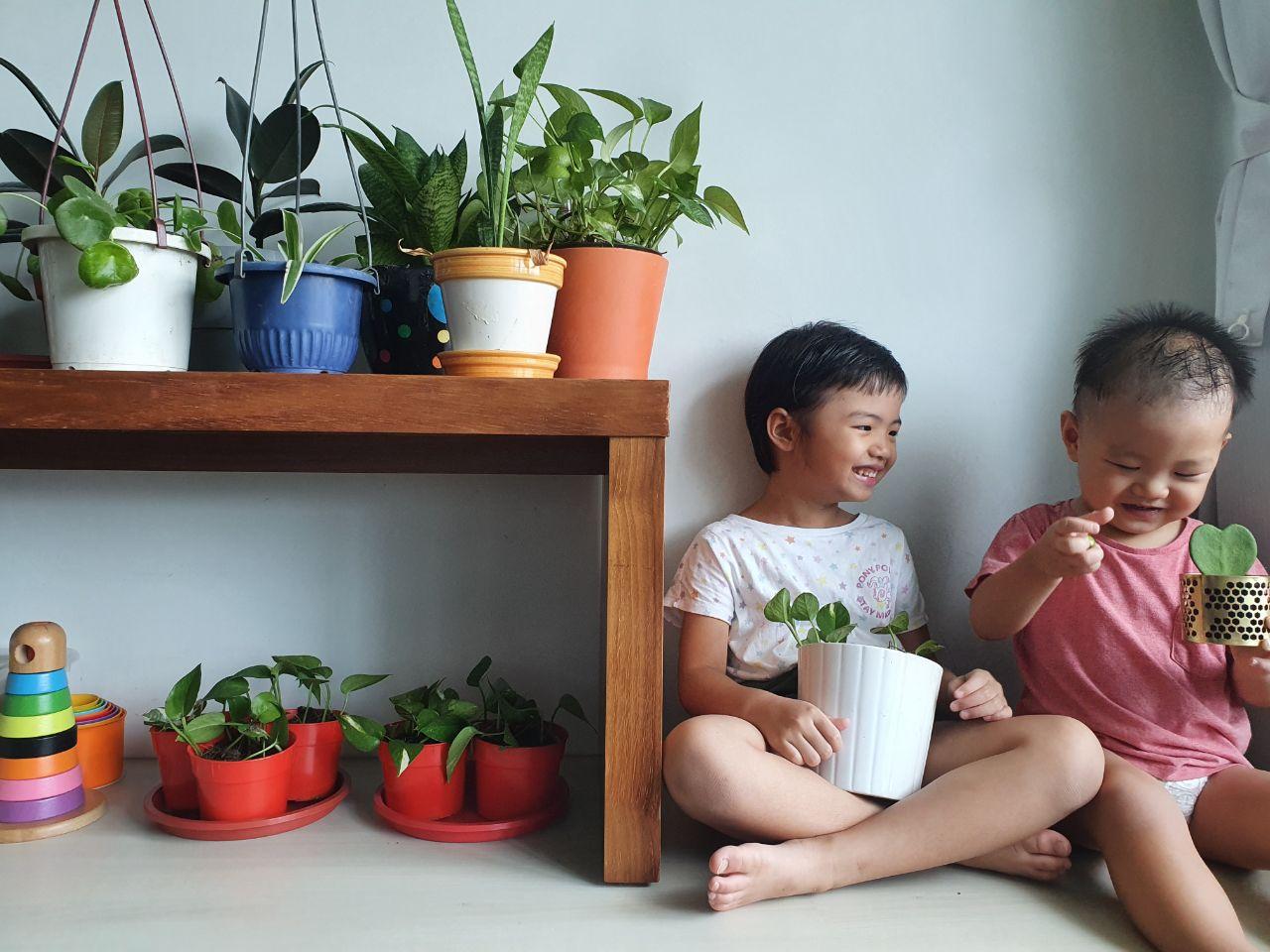
Mya and her little brother, Nathan, with their collection of plants.
Mya also has a soft spot for younger children, especially those who have been separated from their parents, for various reasons. But she loves the migrant uncles in her estate most of all, because they never fail to reciprocate warmly.
“There’s always her beloved grass-cutters, plant-groomers, car washers. Mya never fails to chitchat (with them) in different languages and delay my marketing,” Amy said with a laugh.
Inspiring acts of love
Among the patrons of the plant sale were Mya’s friends, some of whose thoughtful gestures also brought great cheer to the Ji family.
Mya’s plant sale is over, but she is busy befriending and blessing other migrant uncles and aunties.
Inspired by Mya’s move to pour out her savings, a pair of siblings also emptied their piggy banks in an effort to contribute to the migrant community.
Another of Mya’s friends, upon reading about their plight, bought several copies of Amy’s picture book Uncles at Work and gave them out to his classmates via snail mail.
Amy said: “They also wanted other people to know about the uncles that Mya was talking about.”
Mya’s plant sale may be over, but she has been keeping herself busy befriending other migrant uncles and aunties and blessing them through different ways.
Recently, while helping to pack and distribute gift packs for domestic helpers as part of a church program last month, she asked for their birthdays and phone numbers with the hope of sending them voice messages on their special day. She also continues to share about her beloved uncles and aunties with friends.
One day, she hopes to recreate a scene in her mother’s Uncles at Work book, where the construction workers were sharing a meal with residents in the neighbourhood. “I like the part (in the book) where they eat together. I wish I could do that too.”
What would our world look like, if we all had such childlike wonder and compassion for the people around us?
And what if we lived according to the evergreen exhortations to love our neighbours and the sojourners among us as ourselves (Leviticus 19:34; Mark 12:31)? Sojourners that would include the most vulnerable in society — the low-wage workers, the stateless, the homeless, the debtors and the refugees?
For Amy and her husband, Jonathan, they’ve been blown away by the impact a little child could have if only we believed in them.
Perhaps, if we could take a leaf or two from these little ones — as keenly aware of what God loves, as what breaks His heart—we will learn to love better.
And we may then inch a little closer to seeing glimpses of heaven in this world.
This story first appeared on YMI Today and has been republished with permission.
Why one kindergarten took in a boy with brittle bones when seven others wouldn’t
“Migrant workers are a part of our Singapore family”: HealthServe co-founder Tang Shin Yong
We are an independent, non-profit organisation that relies on the generosity of our readers, such as yourself, to continue serving the kingdom. Every dollar donated goes directly back into our editorial coverage.
Would you consider partnering with us in our kingdom work by supporting us financially, either as a one-off donation, or a recurring pledge?
Support Salt&Light


